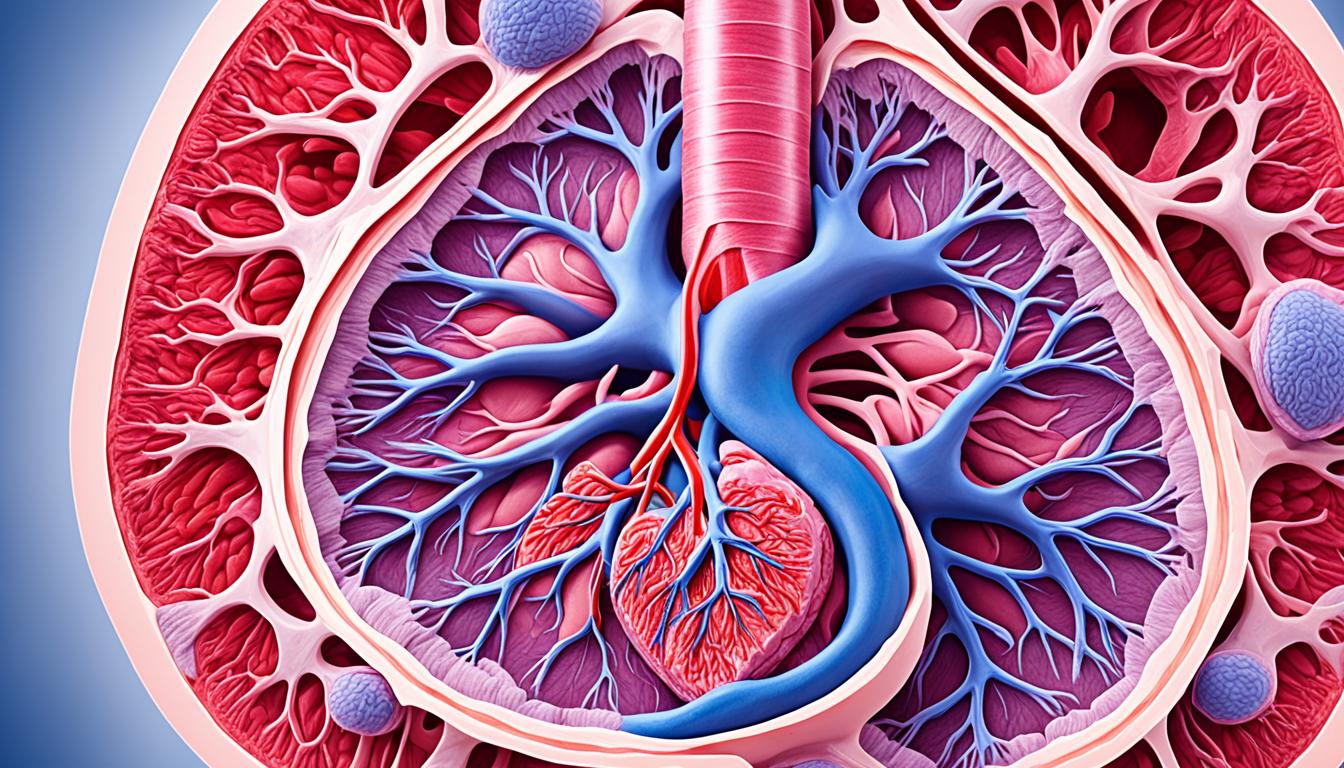Cardiomyopathy is a group of heart diseases that change the way the heart muscle works. One type, called hypertrophic cardiomyopathy (HCM), causes the heart walls to thicken. This makes it harder for the heart to pump blood right. HCM is often passed down in families and can cause symptoms like fast heartbeat, chest pain, and trouble breathing. Despite not knowing all the causes, doctors are looking into new ways, like stem cell therapy, to treat this type of cardiomyopathy.
Key Takeaways:
- Cardiomyopathy refers to a group of cardiac diseases that affect the heart muscle.
- Hypertrophic cardiomyopathy (HCM) specifically involves the thickening of the heart walls, making it harder for the heart to pump blood effectively.
- HCM can be a genetic heart condition and can lead to symptoms like rapid heartbeat, chest pain, shortness of breath, and swelling.
- The causes of hypertrophic cardiomyopathy can be genetic mutations or unknown factors.
- Researchers are exploring innovative therapies, like stem cell therapy, to overcome the limitations of traditional treatments for cardiomyopathy.
Types and Causes of Cardiomyopathy
Cardiomyopathy is a heart condition with many types, each having its own features and reasons. Knowing these types and causes is key for getting the right diagnosis and treatment. The main kinds are dilated, restrictive, and arrhythmogenic right ventricular cardiomyopathy.
Dilated Cardiomyopathy
Dilated cardiomyopathy (DCM) makes the heart chamber walls weak and thin. This makes it hard for the heart to work right, affecting blood pumping. Things like limited blood flow, heart infections, and using alcohol or toxins can cause DCM.
Finding and treating what’s causing DCM is vital for good care.
Restrictive Cardiomyopathy
Restrictive cardiomyopathy (RCM) happens when the heart muscle gets scar tissue. This makes the heart stiff and not pump blood well. The causes can be from underlying health issues, too much iron, or scarring from heart surgeries or therapy.
It’s important to diagnose and treat the conditions leading to RCM for better heart health.
Arrhythmogenic Right Ventricular Cardiomyopathy
Arrhythmogenic right ventricular cardiomyopathy (ARVC) is a rare kind where the heart’s right ventricle muscle turns into fat or scar tissue. This change can cause heart rhythm issues and trouble pumping blood. Its cause is likely a mix of genetic problems and issues with heart cell proteins.
Cardiomyopathy can come from many causes like genes, heart damage, high blood pressure, and infections. Early and correct diagnosis, along with understanding the type and cause, is important for a good treatment plan and results.
Note: The image above shows the main types of cardiomyopathy visually, helping to understand the condition better.
Innovative Stem Cell Therapy for Cardiomyopathy
Stem cell therapy is a new and hopeful way to treat cardiomyopathy. Studies show that injecting stem cells from bone marrow can reduce scar tissue. It can also make the heart pump better and improve the quality of life. These cells can release substances that start a healing process in the heart. This is a big step in treating heart diseases.
Compared to surgery, stem cell therapy is less risky and safer. It brings hope in healing the heart and slowing down cardiomyopathy. It’s seen as a different way to help when normal treatments don’t work. This could change how we treat heart problems in the future.
With its power to help the heart heal, stem cell therapy is a major advancement in heart medicine.

